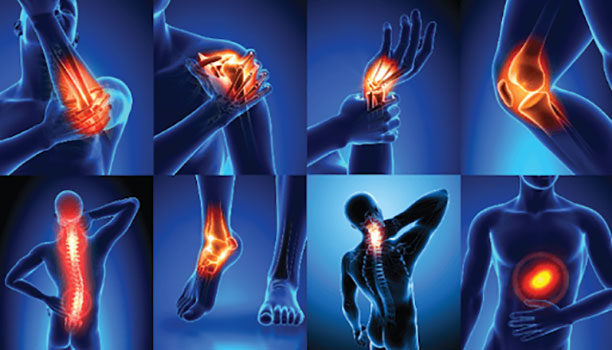
Medical experts have cautioned Nigerians against dismissing persistent joint pain as a minor health issue, warning that such symptoms may be signs of serious underlying conditions.
They attributed recurring joint discomfort to a mix of lifestyle habits, poor treatment practices, and undiagnosed medical conditions such as arthritis, infections, or musculoskeletal injuries.
A Consultant Rheumatologist at the Lagos State University Teaching Hospital (LASUTH), Dr. Hakeem Olaosebikan, raised the alarm over the rising trend of self-medication among patients with joint pain, saying it only provides temporary relief while the actual condition worsens.
“Painkillers only mask the symptoms. They don’t treat the root cause,” he said. “Many people rely on over-the-counter drugs without getting a proper medical evaluation. This can delay diagnosis and lead to complications.”
Dr. Olaosebikan warned that long-term use of pain relievers without medical supervision could result in gastric ulcers, internal bleeding, acid reflux, and damage to the kidneys or liver.
“Some joint pains are caused by different types of arthritis—rheumatoid, osteoarthritis, or gouty arthritis. Each type has a different cause and requires a specific treatment approach. It is dangerous to assume one solution fits all,” he noted.
The specialist emphasised the importance of early diagnosis and targeted therapy, adding that lifestyle changes such as regular exercise, healthy diets, and proper posture can significantly reduce the risk of chronic joint conditions.
He also identified sedentary lifestyles, poor posture, excess body weight, and untreated injuries as major contributors to prolonged joint discomfort.
“Control your weight, avoid inflammatory foods like soda, junk food, excessive salt and seasoning cubes. Instead, focus on eating vegetables, fruits, and whole grains. Stay active and avoid sitting or standing in one position for too long,” he advised.
Corroborating his position, Professor of Orthopaedic and Trauma Surgery, Mike Ogirima, stressed the importance of maintaining a healthy body weight to reduce the strain on joints, particularly weight-bearing ones like the knees.
“Junk food causes weight gain, and excessive weight puts stress on the joints. If not managed early, it can lead to deformities like bowlegs or knock-knees,” Prof. Ogirima said.
He urged Nigerians to adopt preventive measures such as regular physical activity, avoidance of smoking and alcohol, and prompt treatment of injuries to preserve joint health and mobility.
Experts noted that while joint pains are common, they should never be ignored—especially when they become frequent or severe. They urged Nigerians to consult qualified health professionals for proper diagnosis rather than resorting to prolonged use of painkillers or traditional remedies.
They maintained that with the right medical intervention, lifestyle adjustment, and awareness, many joint-related conditions can be managed effectively, preventing long-term disability.